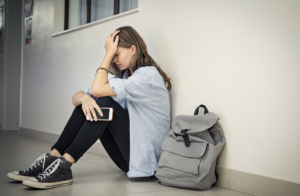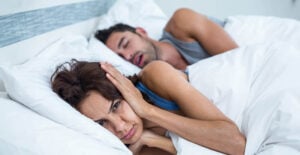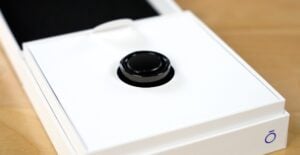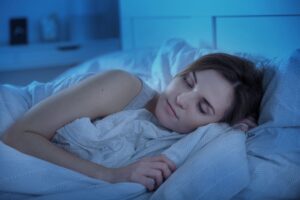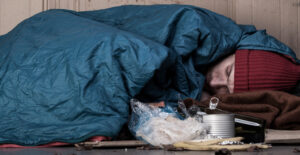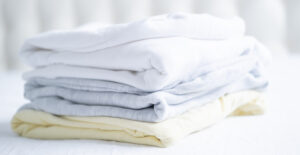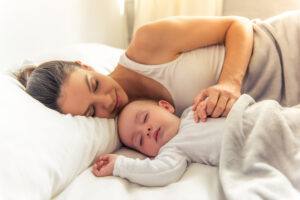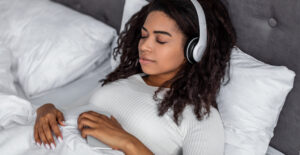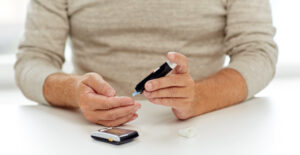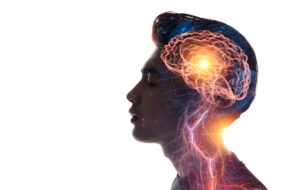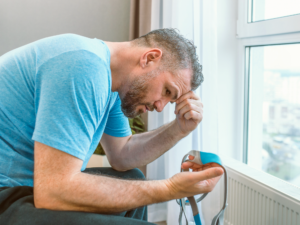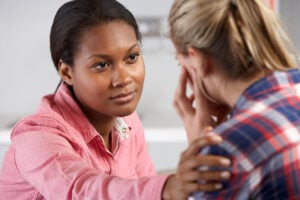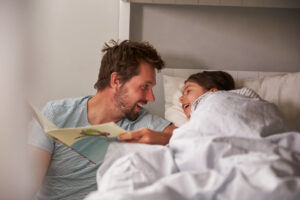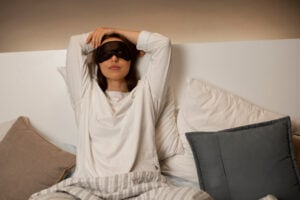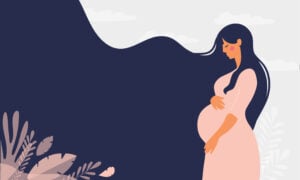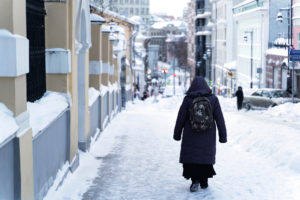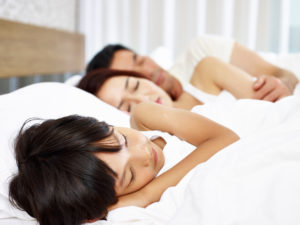Stroke Risk Due to Sleep Apnea May Differ Among White and Black People

If you have sleep apnea, your risk for having a stroke is higher than people without SA. The level of risk, however, may not be the same for Black and white people, a new study suggests.
The research, published in the American Academy of Neurology’s journal Neurology, revealed that white individuals with high risk for sleep apnea and those diagnosed with sleep apnea have a higher risk of stroke compared to people without sleep apnea. The same trend wasn’t seen among Black participants.
The study evaluated data from a mixed group of over 22,000 Black and white individuals over age 45 who were followed for an average of 12 years as a part of a project that started in 2003 and was sponsored by the National Institutes of Health (NIH).
While more research is needed, some experts suggest that changes in pressures in the airway, low oxygen levels in the blood, and constriction of blood vessels could be indicators for higher risk.
The new study’s findings surprised the researchers since Black people are known to have an overall higher risk of strokes compared to white people.
“These results were not what we were expecting to find, since Black people have been shown to have a higher risk of stroke and are more likely to have sleep apnea than white people,” says study author Rebecca Robbins, Ph.D., of Harvard Medical School in Boston. “More research is needed to understand these differences.”
At the start of the study, no participant had a history of stroke, but 11% of them were diagnosed with sleep apnea. When the study ended, 4.4% of the participants had strokes—90 strokes among 1,475 white participants with sleep apnea and 42 strokes among 937 Black individuals diagnosed with sleep apnea.

When researchers took into account other factors that could affect stroke risk, including age, diabetes, and drinking alcohol, they found that white people with sleep apnea were 33% more likely to have a stroke than those without sleep apnea. Black people with sleep apnea had an increased risk, but it wasn’t statistically significant.
CPAP treatment did not seem to lower the risk of stroke for white individuals, but among Black participants, the treatment was associated with a 64% reduced risk of stroke.
The authors said there are still many pieces to these puzzling findings, and the study did not gather information about participants’ severity of sleep apnea or adherence to CPAP therapy, both of which could be subjects of future research.
Got a hot tip? Pitch us your story idea, share your expertise with SleepFoundation.org, or let us know about your sleep experiences right here.
References
5 Sources
-
National Heart, Lung, and Blood Institute. (May 26, 2023). Stoke Causes and Risk Factors., Retrieved March 27, 2024 from
https://www.nhlbi.nih.gov/health/stroke/causes -
Robbins, R., Yuan, Y., Johnson, D. A., Long, D. L., Molano, J., Kleindorfer, D., Petrov, M. E., & Howard, V. J. (2024). Sleep Apnea and Incident Stroke in a National Cohort of Black and White Adults. Neurology, 102(6), e209171.
https://pubmed.ncbi.nlm.nih.gov/38447086/ -
Jehan, S., Farag, M., Zizi, F., Pandi-Perumal, S. R., Chung, A., Truong, A., Jean-Louis, G., Tello, D., & McFarlane, S. I. (2018). Obstructive sleep apnea and stroke. Sleep medicine and disorders : international journal, 2(5), 120–125.
https://pubmed.ncbi.nlm.nih.gov/30680373/ -
Tsao, C. W., Aday, A. W., Almarzooq, Z. I., Alonso, A., Beaton, A. Z., Bittencourt, M. S., Boehme, A. K., Buxton, A. E., Carson, A. P., Commodore-Mensah, Y., Elkind, M. S. V., Evenson, K. R., Eze-Nliam, C., Ferguson, J. F., Generoso, G., Ho, J. E., Kalani, R., Khan, S. S., Kissela, B. M., Knutson, K. L., … Martin, S. S. (2022). Heart Disease and Stroke Statistics-2022 Update: A Report From the American Heart Association. Circulation, 145(8), e153–e639.
https://pubmed.ncbi.nlm.nih.gov/35078371/ -
American Academy of Neurology. (March 6, 2024) Does Stroke Risk Linked to Sleep Apnea Vary by Race?, Retrieved March 28, 2024, from
https://www.aan.com/PressRoom/Home/PressRelease/5156


